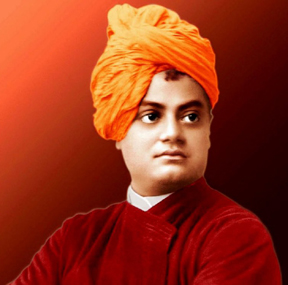
It is remarkable that the possession of India by a foreign power has always been a turning-point in the history of that power, bringing to it wealth, prosperity, dominion, and spiritual ideas.
While the Western man tries to measure how much it is possible for him to possess and to enjoy, the Eastern seems to take the opposite course, and to measure how little of material possessions he can do with. In the Vedas we trace the Endeavour of that ancient people to find God.
We find the growth of this idea of God, from many gods to one God, in all religions; its real meaning is that He is the chief of the tribal gods, who creates the world, rules it, and sees into every heart; the stages of growth lead up from a multiplicity of gods to monotheism.
This anthropomorphic conception, however, did not satisfy the Hindus, it was too human for them who were seeking the Divine.
Therefore they finally gave up searching for God in the outer world of sense and matter, and turned their attention to the inner world. Is there an inner world? And what is it? It is Âtman. It is the Self, it is the only thing an individual can be sure of. If he knows himself, he can know the universe, and not otherwise.
The same question was asked in the beginning of time, even in the Rig-Veda, in another form: “Who or what existed from the beginning?” That question was gradually solved by the Vedanta philosophy. The Atman existed. That is to say, what we call the Absolute, the Universal Soul, the Self, is the force by which from the beginning all things have been and are and will be manifested. While the Vedanta philosophers solved that question, they at the same time discovered the basis of ethics.
Though all religions have taught ethical precepts, such as, “Do not kill, do not injure; love your neighbor as yourself,” etc., yet none of these has given the reason. Why should I not injure my neighbor? To this question there was no satisfactory or conclusive answer forthcoming, until it was evolved by the metaphysical speculations of the Hindus who could not rest satisfied with mere dogmas.
So the Hindus say that this Atman is absolute and all-pervading, therefore infinite. There cannot be two infinites, for they would limit each other and would become finite. Also each individual soul is a part and parcel of that Universal Soul, which is infinite. Therefore in injuring his neighbor, the individual actually injures himself. This is the basic metaphysical truth underlying all ethical codes.
It is too often believed that a person in his progress towards perfection passes from error to truth; that when he passes on from one thought to another, he must necessarily reject the first. But no error can lead to truth. The soul passing through its different stages goes from truth to truth, and each stage is true; it goes from lower truth to higher truth.
This point may be illustrated in the following way. A man is journeying towards the sun and takes a photograph at each step. How different would be the first photograph from the second and still more from the third or the last, when he reaches the real sun! But all these, though differing so widely from each other, are true, only they are made to appear different by the changing conditions of time and space.
It is the recognition of this truth, which has enabled the Hindus to perceive the universal truth of all religions, from the lowest to the highest; it has made of them the only people who never had religious persecutions.
Extracted from an address delivered at Airlie Lodge, Ridgeway Gardens, England. The 154th birth anniversary of Swami Vivekananda was celebrated on January 12
Swami Vivekananda






